Seeking advice about demolishing & rebuilding
8 years ago
Featured Answer
Sort by:Oldest
Comments (35)
- 8 years ago
Related Discussions
Cost of demolishing attached garage
Comments (18)Well, it was full speed ahead, and now the brakes are on. DH isn't sure it's sensible to spend, when all is said and done, 50K for a basement. I don't see it that way. I see it as 1600 sf of MUCH NEEDED SPACE. Can you tell I'm at my wits end? We're busting at the seams. We're definitely putting on some type of addition, and we have a budget. He doesn't want to take 50K off the budget just for the basement. That is totally understandable, but many/most of our needs won't be solved without a basement. Anyway, after 12 years of marriage, I know how to handle this. Over the years there have been several moments like this. For example, we discussed having 3 children when we were dating. After being married and having 2 boys, he felt we should stop. I wanted to try for a third, secretly hoping for that little girl. After many months/years of no's...our little (daddy's) girl will be 4 in July, and yes he had agreed, no tricking. He was hesitant to move to our current home, it was a big jump, but you couldn't beat the neighborhood or location. I worked my magic and this is our 6th year in the house. Mind you it needs much work and updating to be what we'd like it to be, but like I always tell my kids, good things come to those who wait. There have been many other situations like these. He said no pool...my kids love having their friends over to swim and zip down our slide. He said we're driving to South Carolina...the flight was a bit bumpy, but much faster and quieter than a car ride with a 3, 6, and 9 year old. He just needs a little time to warm-up to all of it. And I totally respect that. He sees friends struggling to make ends meet because they are living above their means, and it scares him...well both of us. I'm shooting for September to start this project. I'm still weighing our options. I will update this post and hopefully it will say: He didn't want a basement...my kids love our large open basement where they can have fun together, be as loud as they want, and do their thing without tripping over each other. Keep your fingers crossed....See MoreSeek advice of protecting floor and cabinets during remodeling.
Comments (5)Americover 800-747-6095. We have a few options for protecting your surfaces. We carry a Countertop cover that is self adhesive, but it doesn't transfer residue. It's ideal for protecting granite counter tops, laminate counter tops, Corianî counter tops, marble counter tops and laboratory tops. We also carry an affordable dust containment system. Especially since dust is a major health concern. Check out our website for more products that save you time and protect your surfaces. Here is a link that might be useful: Americover...See MoreHelp! Came home from store JUST NOW & driveway has been demolished!
Comments (36)Ha! I hope this doesn't happen to you either! We're getting prices for pavers now. If we can't afford the whole thing in pavers, we'll do concrete with some kind of nice looking border (stamped or pavers). I have a landscape designer doing the planning so that I don't mess it all up and it ends up looking haphazard. Gotta move some trees, beds, build a new front walk. It's all connected. This mistake has messed up the timing, but maybe it'll end up a good thing; forced me to start the project....See MoreHello from an old member, now a new member seeking advice.
Comments (20)Hello All, Thank you so much for your tips and advice. Its lovely to be welcomed back after such a long, long break. David, you jogged my memory. I met Laurie and Jean once more than ten years ago and I trucked out to Reliable Roses and we (and the rest of the Vic crew) spent the day there then had this amazing Indian supper at a restaurant near their place. I wonder if they will remember me, they both used to be forum users way back in the day before Houzz took over gardenweb. I think they will be my first port of call, I remember Laurie being particularly surprised that such a young person had an interest in roses and Jean was just so inspiring and helpful. Its good to know they are still around. I will call them and have a chat about what they're likely to have in stock for the bare root season. I hit the Misty Down's website and saw that it was under construction, really quite sad that they're not doing roses. But thank you for clarifying that David. Thank you for your advice Countess, I was leaning to Lamarque, and I did remember it had the hint of lemon, but I think it would be nice, I'll look at your links to see if there is anything else. Carol, hello, the entire front is going to be white and green plants only and I've been debating which rose since the fence is a gable style with a low wall in the centre, for a total of 8 metres. Originally I had a William Lobb moss on that front fence and it was freakin' spectacular. Until my "very kind" neighbour trimmed back "my messy rose" chopping 8ft flowering canes (which were tied to the fence) down to the ground one year and it never grew right after that. Very unfortunately it could not be saved at all. PortlandMystery: Victoria has Mediterranean style temperatures cold winters, damp but warm spring, hot summers, and warm autumns. Roses have always done well in my garden, owing to the microclimate of the immediate neighbourhood. Lots of people here have big shade trees, loads of roses and underplanting. I never had to use pesticides either. This means that roses usually get far bigger than they're meant to. Every single David Austin rose I had grew four times the size that was recommended and I grew a Westerland on the advice that it would never get bigger than a 6 foot fence and that bloody rose could have taken over my house. Ingrid, Snowbird! That's a good idea as well. It might end up on a different wall in the front garden. I quite like Noisettes but I worry that they are so vigorous that they might be too much for the low fence at the front. Probably a good idea to think about them for pillaring out the back. Curdle, thank you! I definitely want a Docteur Jamian rose for a pillar feature I have. My Docteur Jamain had these beautiful long canes after it got established that I can imagine would work well for a pillar. I wanted to position it between a Zephyrine Drouin if I can find it. Thank you all, you've given me some great starting points and triggered my terrible memory....See More- 8 years ago
- 8 years ago
- 8 years ago
- 8 years ago
- 8 years ago
- 8 years ago
- 8 years ago
- 8 years ago
- 8 years ago
- 8 years ago
- 8 years ago
- 8 years ago
- 8 years ago
- 8 years ago
- 8 years ago
- 8 years ago
- 8 years agolast modified: 8 years ago
- 8 years ago
- 8 years ago
- 8 years ago
- 8 years ago
- 8 years ago
- 8 years ago
- 8 years agolast modified: 8 years ago
- 8 years ago
- 8 years ago
- 8 years ago
- 8 years ago
- 8 years ago
Related Stories
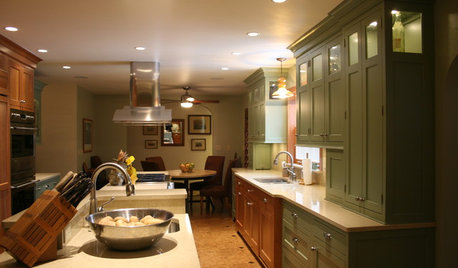
KITCHEN DESIGNSmart Investments in Kitchen Cabinetry — a Realtor's Advice
Get expert info on what cabinet features are worth the money, for both you and potential buyers of your home
Full Story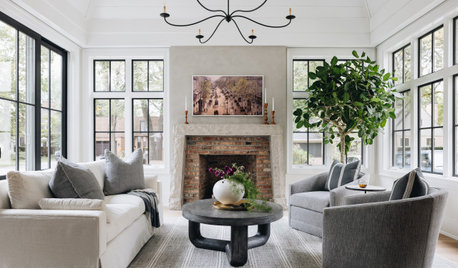
FURNITUREHow to Buy a Quality Sofa That Will Last
Learn about foam versus feathers, seat depth, springs, fabric and more for a couch that will work for years to come
Full Story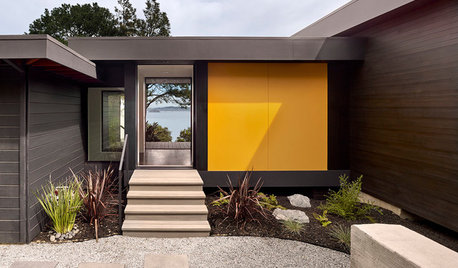
BUDGETING YOUR PROJECTConstruction Contracts: What to Know About Estimates vs. Bids
Understanding how contractors bill for services can help you keep costs down and your project on track
Full Story
FALL GARDENINGWhat Monarch Butterflies Taught Me About Garden Design
Thinking like a butterfly leads to fresh perspectives in the garden and in life
Full Story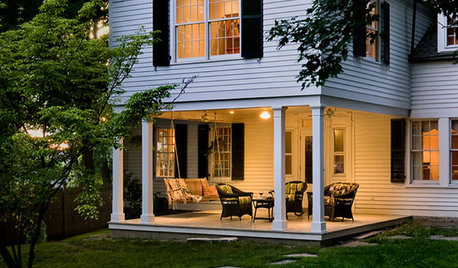
SELLING YOUR HOUSEThe Latest Info on Renovating Your Home to Sell
Pro advice about where to put your remodeling dollars for success in selling your home
Full Story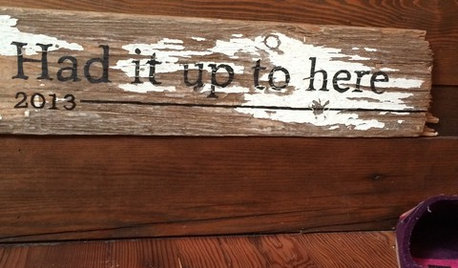
DISASTER PREP & RECOVERYFamily’s New Style Rises in the Aftermath of a Flood
After their damaged walls are demolished, homeowners realize they like the open space and decide to keep it
Full Story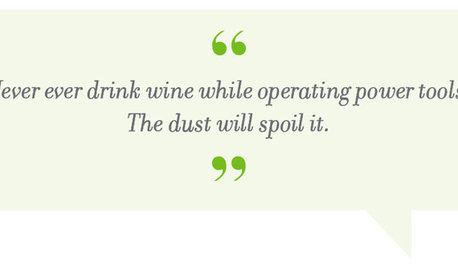
MOST POPULARSo You Say: 30 Design Mistakes You Should Never Make
Drop the paint can, step away from the brick and read this remodeling advice from people who’ve been there
Full Story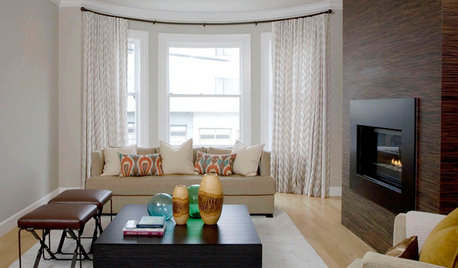
DECORATING GUIDES7 Home Purchases Worth the Splurge
Make buyer's remorse over furniture, textiles and more a thing of the past with this wise purchasing advice
Full Story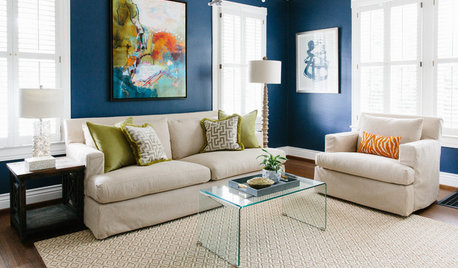
MOST POPULARThe Right Way to Test Paint Colors
Here are 5 key steps to take to ensure you're happy with your wall paint color
Full Story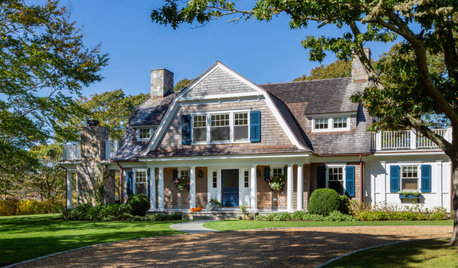
CONTRACTOR TIPSYour Complete Guide to Building Permits
Learn about permit requirements, the submittal process, final inspection and more
Full StorySponsored



chisue